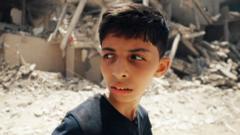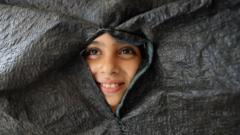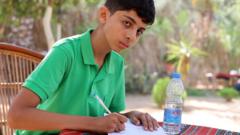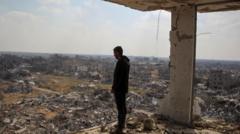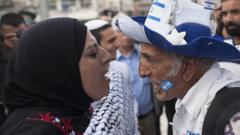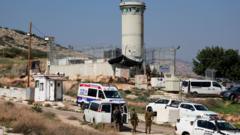Directed by Basel Adra, "No Other Land" explores the fight of a West Bank community and the resulting friendship between two filmmakers, one Palestinian and one Israeli. Nominated for both an Oscar and a BAFTA, the documentary sheds light on the harsh realities of life in Masafer Yatta as it showcases both human connection and the impact of systemic injustices.
Oscar-nominated Documentary Highlights Struggles in the West Bank
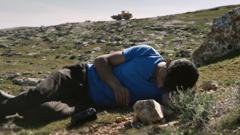
Oscar-nominated Documentary Highlights Struggles in the West Bank
The film "No Other Land" shines a spotlight on the personal and political challenges faced by Palestinian and Israeli communities amidst ongoing conflict.
In the heart of the West Bank, a poignant story unfolds in the documentary "No Other Land," which has recently garnered attention by being nominated for an Oscar and a BAFTA for Best Documentary Feature. Directed by Basel Adra, the film chronicles the lives of residents in Masafer Yatta, an area marked by conflict between Palestinian communities and Israeli authorities. Over a five-year filming journey, Adra, alongside Israeli journalist Yuval Abraham, delivers a compelling narrative that centers on their friendship, as well as the broader struggle of their communities.
The film captures disturbing scenes where Israeli demolition machinery destroys homes, a school, and a well in Basel's village, which has been declared illegal under a court order. The tension intensifies with real incidents of violence, including the arrest of Basel's father, his narrow escape from detention during a protest, and tragic outcomes involving local residents, leading to critical injuries and deaths. Eyewitness accounts diverge significantly from official narratives, with Palestinians claiming injustices and a lack of thorough investigations by Israeli authorities.
Despite the documentary's success in raising awareness about these issues, Yuval expresses concerns over the limited actionable change among those in power. He emphasizes the transformative capacity of films, noting they may influence individuals, but acknowledges they alone cannot enact global change. Meanwhile, Basel recognizes the challenging circumstances that accompany their friendship, highlighting how he is often unable to access areas that Yuval traverses freely due to restrictive measures that characterize the current political climate.
Set against a backdrop of escalating tensions since the October 2023 Hamas attack on Israel, the documentary remains timely; it showcases both the historical context of Israeli settlement expansion and the immediate repercussions for Palestinians. Global attention on such stories emphasizes the need for international engagement, as noted by the UK’s demand for compliance from Israeli ministers regarding settler violence and rights protection for Palestinians.
Critics of the filmmakers' outspoken views on the political situation face backlash, highlighting the contentious atmosphere surrounding discussions of apartheid and occupation. Adra and Abraham both feel the weight of representation as they navigate their identities and the varying perceptions held by different communities.
By interweaving intimate human narratives amid systemic violence, "No Other Land" resonates widely. As Basel remarks, "One water drop doesn't make change," signifying that sustained efforts, akin to persistent droplets of water, are required to foster hope in a future where both Israelis and Palestinians can experience freedom and security. Ultimately, the documentary serves not just as a vessel of artistic expression, but as a timely call for awareness and action amidst one of the world's longest-sustained conflicts.


